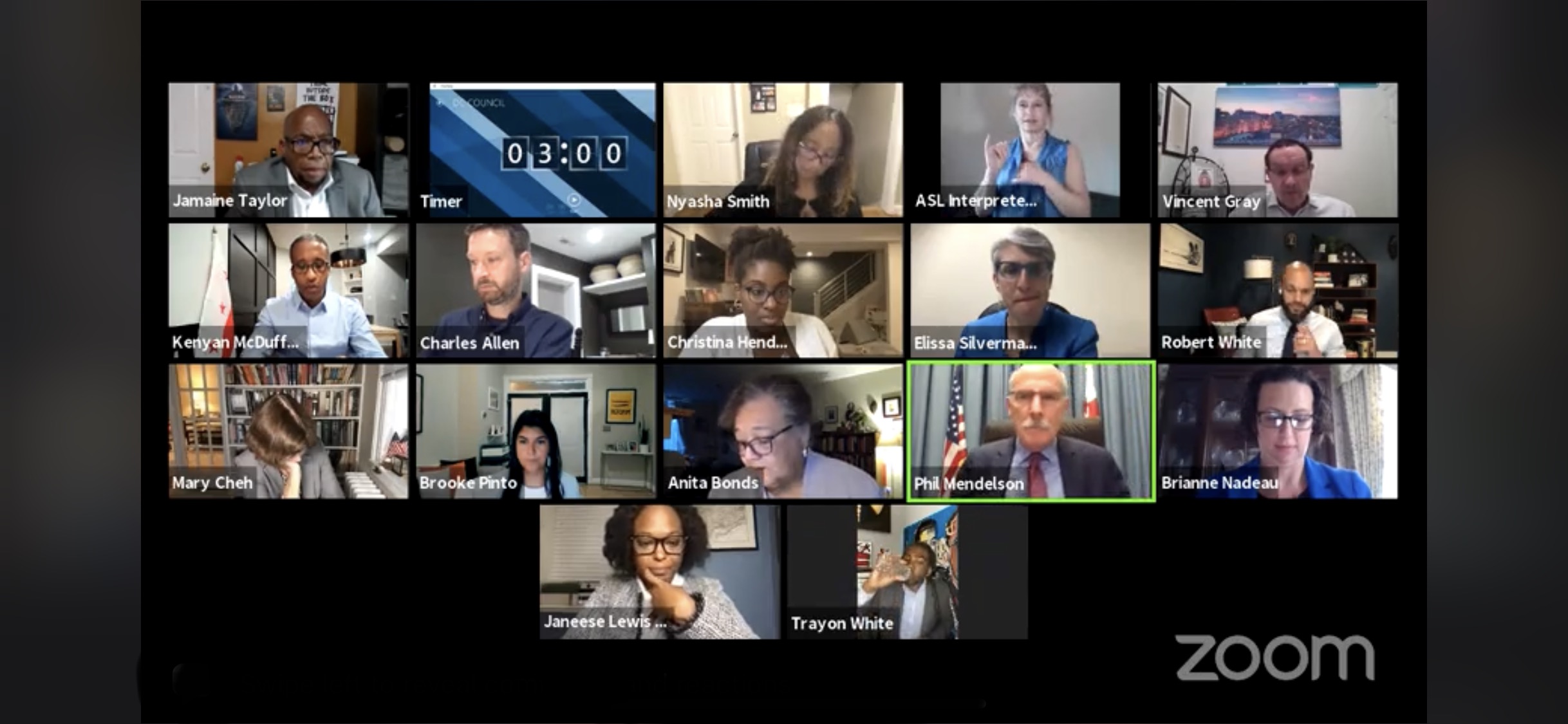Council Casts a Unanimous First Approval Vote on the Comprehensive Plan

At its most recent Legislative Meeting, the Council voted, in the first of two necessary votes, to support revisions to the District’s Comprehensive Plan. The Comprehensive Plan provides a District-wide, neighborhood-by-neighborhood, block-by-block, or even building-by-building plan for DC’s future–what is critical to preserve and what changes must occur. The original version was adopted in 2006, and it was last amended in 2011. The current rewrite process stretches back across three two-year Council Periods.
Back in October of 2019, the Council approved the broad, thematic “framework” element of the Comprehensive Plan after a broad, two-year, extensive, all-hands-on-deck effort to truly rework the document. The original draft version of that measure, as submitted by Mayor Bowser, was substantially reworked by the Council to emphasize the importance of affordable housing and protections against the displacement of vulnerable residents. In a move that foreshadowed the most recent changes, racial equity was among the central criteria in the Council’s improvements to the initial draft.
Fast-forward to April of 2020:Mayor Bowser submitted her proposed draft of the remainder (and the bulk) of the Comprehensive Plan for the Council’s review. In the year-long process of reviewing and drafting amendments to this portion of the Comprehensive Plan, the same central principals of housing affordability and non-displacement were again emphasized by the Council.
However, in the intervening time since the Council’s prior action on the Comprehensive Plan framework element, the Council has passed the Racial Equity to Achieve Results (REACH) Act. Among other things, that bill created a Council Office of Racial Equity (CORE) that would explicitly bring a racial equity lens to the Council’s legislative action. While the Council began to emphasize the importance of racial equity in its earlier edits to the framework element of the Comprehensive Plan, this racial equity focus was doubled-down on in the Council draft of the rest of the document.
Among CORE’s responsibilities is to formally report back on an individual proposed bill’s potential for positive or negative impacts on racial equity. In one of CORE’s very first such reports, it stated that as submitted, the Mayor’s draft of the Comprehensive Plan would “exacerbate racial inequities” in the District. The report further stated that while the Council’s multiple revisions brought significant racial equity gains to the document, those alone could not entirely repair the impacts of the broader plan.
After years of work, the Council’s draft of the Comprehensive Plan received the first of two necessary votes at the most recent meeting. The vote was unanimous, and while in their comments some councilmembers mentioned suggested changes that were not included in the final draft, all complimented the extraordinary staff-work that went into the document, and the many suggestions they made that were accepted in the draft plan. A single amendment was adopted during the Legislative Meeting, allowing for greater density at two government-owned potential development sites on the U Street corridor.
In other action at the meeting, the Council unanimously approved Robert J. Contee III as the new chief of the Metropolitan Police Department. Contee, a native and lifelong Washingtonian, received plaudits for his knowledge and lived experiences in the District, but councilmember comments also made clear that he would be held accountable for the implementation of needed reforms, such as those suggested by the Council-created Police Reform Commission earlier this year.
In the Council’s arcane, Congress-imposed legislative process, measures that are time-sensitive can be passed on an “emergency” basis, subject to a two-thirds vote, with a limited 90-day applicability. At the most recent meeting, the Council approved an “emergency” bill that clarifies that if someone has short-term disability benefits in addition to the District-wide paid family leave coverage, both benefits must be fully honored, sequentially and cumulatively, and not be allowed to undercut each other.
The Council also approved an “emergency” bill that ensures that individual school budgets facing potential cuts next year be, at a minimum, “made whole” and kept at the current year’s funding levels.
In a fairly rare occurrence, two proposed “emergency” bills did not receive the two-thirds vote needed to allow for their passage. The first bill would have essentially exempted the United Medical Center from a previously-imposed Council overspending prevention mechanism—the imposition of a financial control board if spending exceeded a certain limit. The proposed bill would have raised that trigger amount from $15 million to $40 million. The second “emergency” bill would have created a renewable three-year term for the director of the Office of Human Rights, which is facing a large backlog of cases. That bill also did not receive the needed two-thirds supermajority.
Two measures which had received some public and media attention were withdrawn so they could be further elaborated and voted on at a future Legislative Meeting: one that would have extended the District’s COVID public health emergency, and another that would have set aside some of DC’s new marijuana licenses for returning citizens.
Speaking of future Legislative Meetings, the next two will be held on May 18 and June 1.